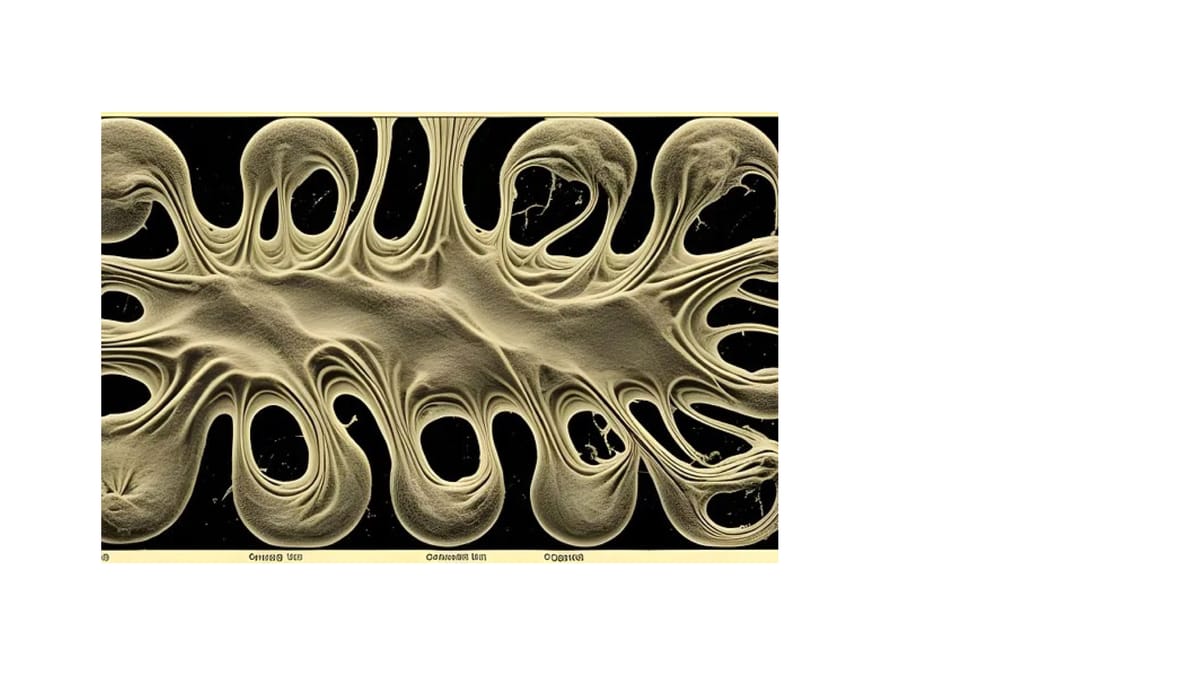Interview: The Spouter
Getting 'Noided' with the Spouter: The Utility of Speculative Philosophy, Unpacking Sentient Oil, and The Allure of Typewriters + more

Jed is an imaginative writer from Oakland, California known for his intriguing work of speculative philosophy published on Substack as The Spouter.
Viewed through a Marxist lens, The Spouter presents an unconventional narrative on petroleum's role in shaping contemporary history.
Our discussion spans a range of captivating topics. We examine the historical significance of petroleum and Jed's efforts to ignite a revolutionary approach to climate discourse.
We navigate through the complex interplay between humanity and fossil fuels—oil, coal, and gas—analyzing them from various viewpoints: religious, materialistic, Marxist, speculative, and literary. This multifaceted exploration aims to challenge and transform the conventional narrative surrounding climate change.
We also wander into the realms of hyperstition and cybernetics, reflecting on the impact of analog technology, typewriters, and the role of speculative philosophy. We touch upon literary masterpieces like Thomas Pynchon's "Gravity's Rainbow" and Reza Negarestani's "Cyclonopedia," among other intriguing subjects.
Jed encourages a spirit of open-minded inquiry. He argues that while you may not align with all his ideas, they serve as a catalyst for sparking new questions and fostering a more nuanced, complex perspective on history and current affairs.
Get “Noided” as The Spouter argues…
Intro Music Sample from Acediast / “Malformed Canticle of Despondent Langour”, Tristidigezh Records 2022.
Time Stamps
1:57 - Typewriters and analog technology
4:33 - Finding Inspiration in Cyclonopedia for the project The Spouter
6:19 - Schizophrenia Reading and Cybernetics Role of Speculative Philosophy
11:41 - The Concept of Sentient Oil
15:30 - Capitalism and Other Hyperobjects
19:30 - Hyperstition
20:07 - The Global Warming Discourse
23:47- Cybernetics, environmentalism and control/fragmentation of reality
34:04 - Communism as hyperobject
40:24 - Sentient oil seen thru religious analysis - discussion on the Jinn
50:24 - Discussion on return to religion in society
55:10 - How to regain humanism
60:21 - Paranoid sensibility / Parapolitical sensibility - Getting “noided”
61:55 - Gravity’s Rainbow by Thomas Pynchon
65:35 - On possession by the hyperobject
68:14- Jed's book and where to find his writing
70:05 - Material Analysis in Understanding History
Further Reading / Notes from Jed (The Spouter)
Cited and Recommended
Cyclonopedia: Complicity with Anonymous Materials. Reza Negarestani, Re:Press 2008.
Knot of the Soul: Madness, Psychosis, Islam. Stefania Pandolfo, University of Chicago Press, 2018.
- Re: Jinn
Thirst for Annihilation: George Bataille and Virulent Nihilism. Nick Land, Routledge, 1992.
- Nick Land did coin the term “Hyperstition”, though probably not in this book. This one is probably the most relevant to our conversation.
Anti-Oedipus: Capitalism and Schizophrenia Volume 1. Gilles Deleuze and Felix Guattari. Try to get the translation from University of Minnesota Press, 1983. (I haven’t read the Penguin translation.)
A Thousand Plateaus: Capitalism and Schizophrenia Volume 2. Gilles Deleuze and Felix Guattari. Minnesota, 1983
Hyperobjects: Philosophy and Ecology after the End of the World. Timothy Morton, University of Minnesota Press, 2013.
The Ecological Thought. Timothy Morton, Harvard University Press, 2012.
- This was what I was reading when the phrase/slogan “Modernity is the process of oil getting into everything” arose – the text might not say exactly that, but this is where it is from, and I consider it foundational to my work.
Ecology and Socialism: Solutions to Capitalist Ecological Crisis. Chris Williams, Haymarket Books, 2010
- Recommended. Much easier to parse than John Bellamy Foster’s ecological socialism.
The Closing Circle: Nature, Man & Technology. Barry Commoner, Random House 1971.
- An example of good/less compromised ecological writing of the type suppressed by the suspect texts listed below.
Cited and Argued With
The Progress of This Storm: Nature and Society in a Warming World. Andreas Malm, Verso, 2020.
Donella Meadows, Dennis L. Meadows, Jorgen Randers, William W. Behrens III. Universe Books, 1971.
Gaia: A New Look at Life on Earth. James Lovelock. Oxford University Press, 1979.
The Ages of Gaia: A Biography of Earth. James Lovelock. Norton, 1988.
Books You Should Prioritize Reading
The Jakarta Method: Washington’s Anticommunist Crusade and the Mass Murder Program That Shaped Our World. Vincent Bevins, PublicAffairs 2020.
- Highly recommended gateway drug to noided history.
Gravity’s Rainbow. Thomas Pynchon, 1973.
- I have to convince people to read it, since it’s a hard book; believe me when I tell you the effort will pay off. Lots of these “big” books like Ulysses and Moby Dick, maybe the effort isn’t worth it for some people. Gravity’s Rainbow is worth it for everyone. I know that people are busy and attention spans are short. But anyone who doesn’t read it really is missing out on something revelatory and very compelling.
Zionism in the Age of Dictators. Lenni Brenner, 1983.
- Available online at Marxists.org
- Worth reading for anyone who doesn’t understand how the settler colonial project of Israel came to be, because it points out something that people don’t want to talk about.